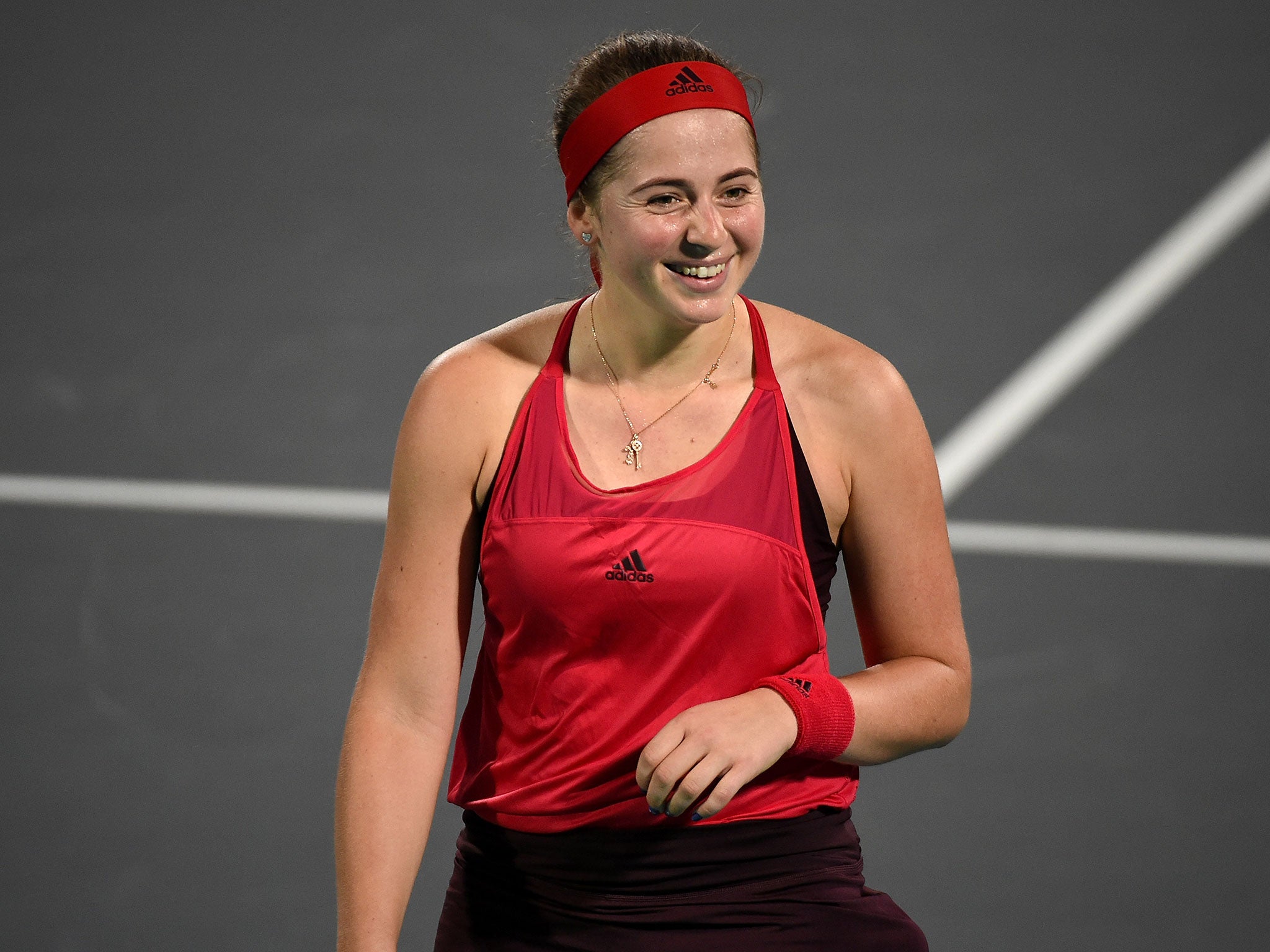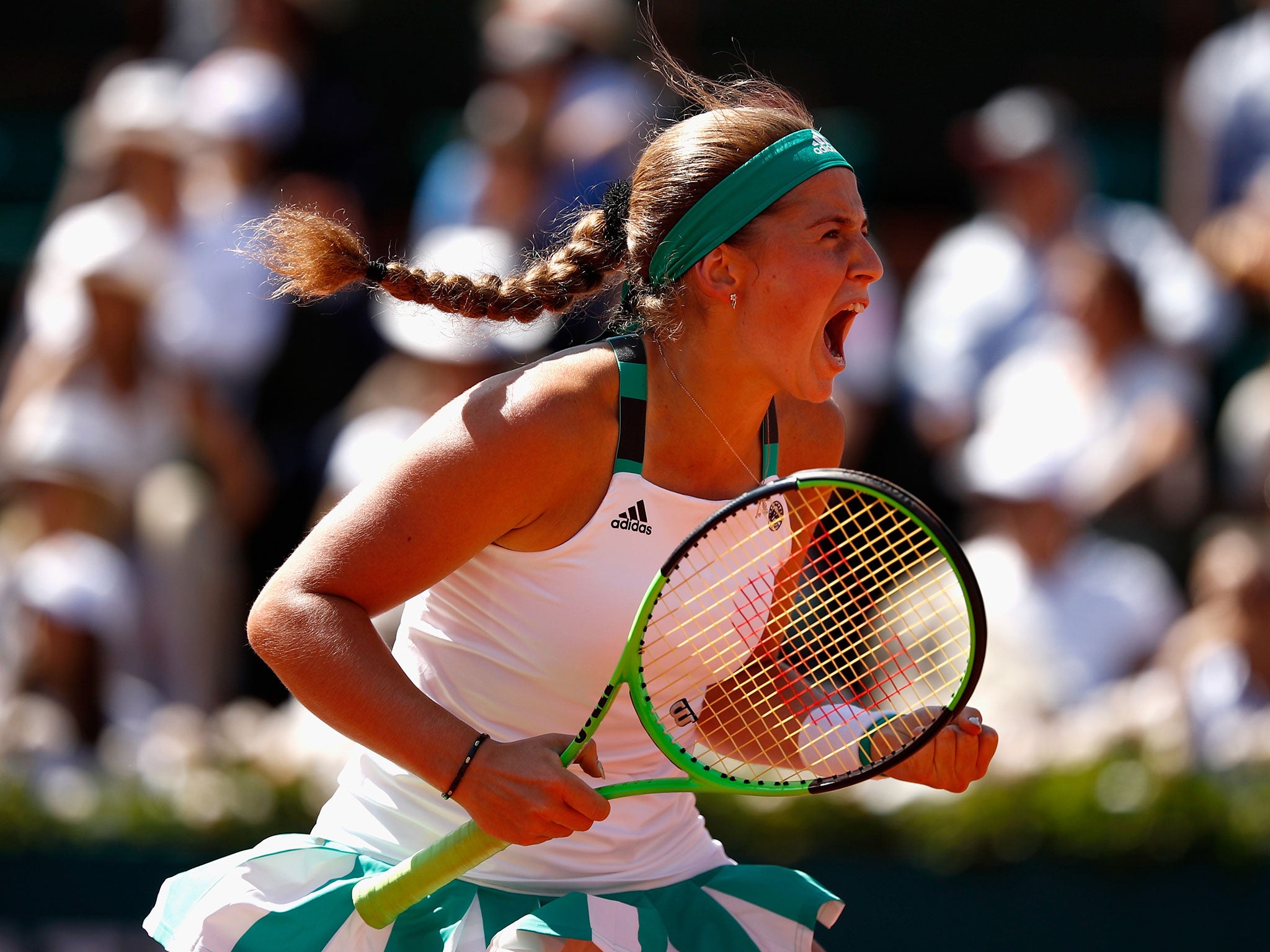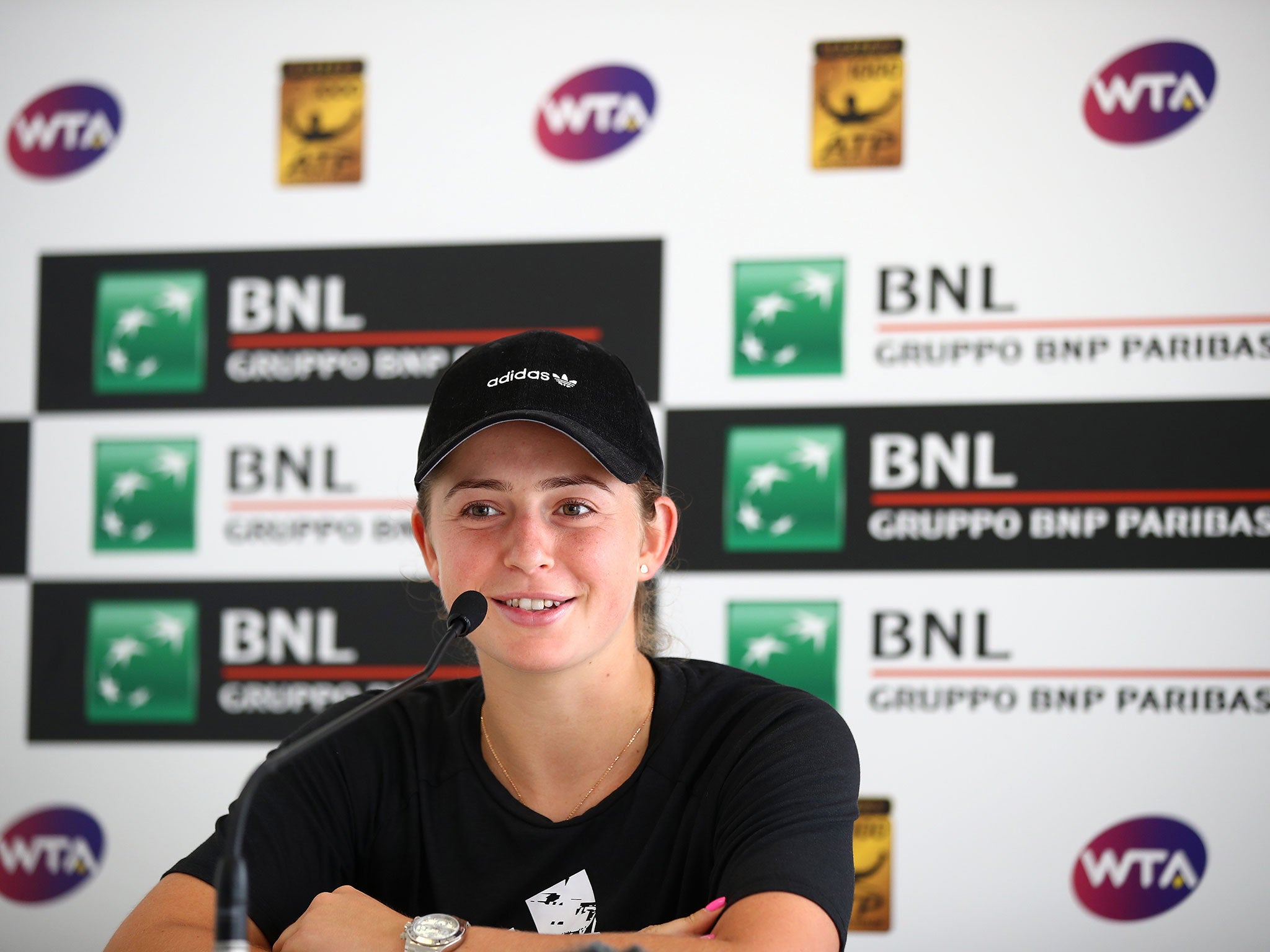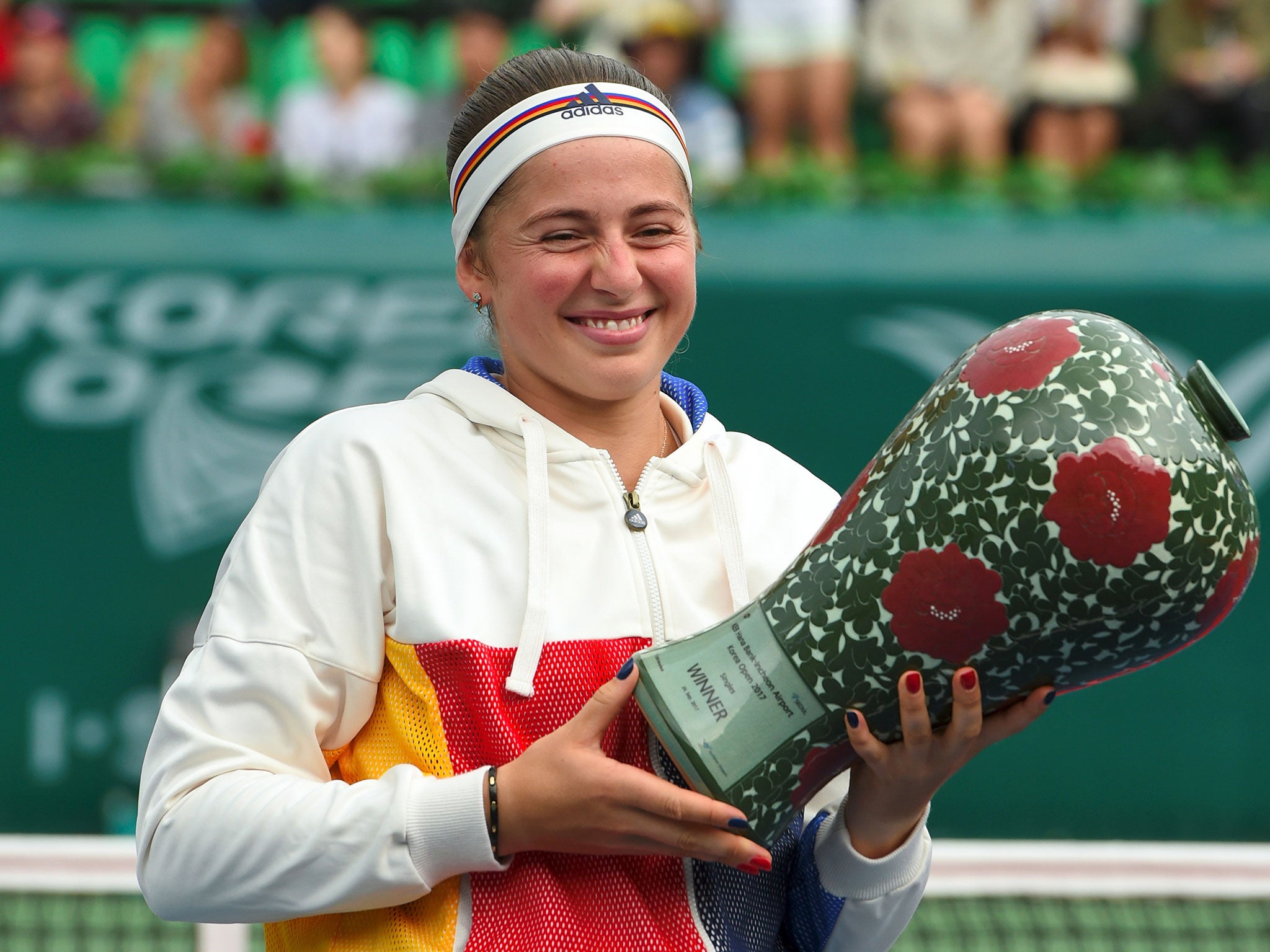Jelena Ostapenko on last year's French Open success and coping with her new-found fame
Exclusive interview: Following last year's success in Paris, the young Latvian has found herself immersed in a world previously unknown to her - here, she opens up on life across the past year

Ask most players whether they have watched a video of a past triumph and they will tell you they just do not have time. Jelena Ostapenko, who won the French Open here last year in one of the most remarkable upsets in the tournament’s history, is different.
“I’ve maybe watched it five times,” the 20-year-old Latvian said with a smile. “Every time I watch it I’m like: ‘Oh, I played really well!’ I think I played better and better with every match and built my confidence, especially in the final.”
This year’s French Open begins here on Sunday, with Ostapenko having packed in plenty of experience over the last 11-and-a-half months. She arrived in Paris last year having never won a match at Roland Garros – she had lost in the first round in her only previous appearance 12 months earlier – and having never won a senior tour-level title.
Ostapenko was the first unseeded player to win the Suzanne Lenglen Cup since Britain’s Peggy Scriven in 1933, the first Latvian to win a Grand Slam title, the first woman to secure her maiden title at a Grand Slam event for 38 years and the first player of either sex to win their first tour-level title at Roland Garros since Gustavo Kuerten in 1997 on the very day Ostapenko was born.
She won, moreover, playing a remarkable style of tennis, going for her shots at every opportunity. Simona Halep, her opponent in the final, hit just eight winners. Ostapenko cracked 54.
Having started the tournament ranked No 47 in the world, Ostapenko climbed to No 12 the week after her triumph. Her successes since then have not been quite as spectacular, but she has continued to progress.
Although she has won only one more title (in Seoul last September), Ostapenko has performed consistently at Grand Slam level (she reached the quarter-finals at Wimbledon and the third round at the US and Australia Opens) and recorded wins over Garbine Muguruza, Petra Kvitova, Karolina Pliskova and Elina Svitolina. She goes into next week’s tournament as world No 5.

There is a youthful exuberance about Ostapenko, who will turn 21 early next month. She still lives at home with her parents in the Latvian capital of Riga and her best friend is an old classmate.
“She’s studying at medical school,” Ostapenko said. “I’m really good friends with her and some other people I went to school with, plus some Latvian tennis friends who played with me in juniors. There are a couple of girls I’ve known since we were 10 and played together in summer camps.
“That hasn’t changed since I became a big name in my country. I think old friends, those who have been with you in your tough moments, they’re your best friends.”
Ostapenko has, nevertheless, become quite a celebrity in Lavtia. “Of course it’s changed a lot, especially after I won the French Open and became a top 10 player,” she said. “If I go to walk in the city people often recognise me and ask me for some photos. For most of the time that’s nice, but there are times when you would like some privacy. It’s very difficult because the country is quite small and we don’t have many famous people.”
Ostapenko said she had not been tempted to move to Monte Carlo or the Middle East or any of the other havens for tennis players seeking warming weather or lower taxes, or both.

“I really love Riga,” she said. “I’m so used to it and it’s a beautiful city. You have everything you need there. There’s usually never any problem with the traffic. Everything in Riga is quite close, but at the same time the city’s not that small.”
Ostapenko has trained for the last 10 years at the same club. The only difference now is that the outside courts have been named after her and a cabinet inside the clubhouse displays her French Open trophy.
Her post-Roland Garros celebrations included breakfast with Latvia’s president the following week, though the recognition she had earned in her homeland began before that, when she flew home with one of her sponsors, airBaltic, Latvia’s state-owned airline.
“When we boarded at the airport in Paris they sent a special bus for me and my team,” Ostapenko said. “We were then the first ones to go on the plane. The crew were waiting for us with flowers to congratulate us.”
Ostapenko further cemented her place in her compatriots’ hearts by leading the way in a historic Fed Cup victory last month as Latvia (population 1.9 million) beat Russia (population 144 million) to secure a place in the World Group for the first time. Remarkably, Latvia has two top 20 players in Ostapenko and 28-year-old Anastasija Sevastova.

“After my French Open win, I think our Fed Cup win has been the biggest story in Latvian tennis in the last year,” Ostapenko said. “To beat a country like Russia, which produces so many top players, is a great achievement for Latvian tennis.”
Ostapenko is still coached by her mother, but at the end of last year her entourage was bolstered by the recruitment of David Taylor, who worked with Sam Stosur throughout his fellow Australian’s best years and also coached Ana Ivanovic and Naomi Osaka.
Having done her pre-season training with Taylor as a trial, Ostapenko now has a longer-term deal with him. He will work with her for about 15 weeks of the year and in particular at the Grand Slam tournaments.
“My mum is a great coach but sometimes it’s hard because she’s my mum too,” Ostapenko said. “We needed someone else and he was available. We did some trial weeks, liked each other, and decided to work together.”
Taylor will not be changing her attacking style. “Ever since I started playing I’ve wanted to really go for it,” Ostapenko said. “I really liked to win points by myself and not just wait for my opponent to miss. I think I was like that from the beginning. I don’t think you can teach those things.”
Ostapenko lists hard and grass courts as her favourite surfaces, but that may change. “The clay at the French Open is different to everywhere else because it’s very fast,” she said. “But now after we beat Russia on clay as well maybe it will become my favourite surface.”
Subscribe to Independent Premium to bookmark this article
Want to bookmark your favourite articles and stories to read or reference later? Start your Independent Premium subscription today.


Join our commenting forum
Join thought-provoking conversations, follow other Independent readers and see their replies
Comments